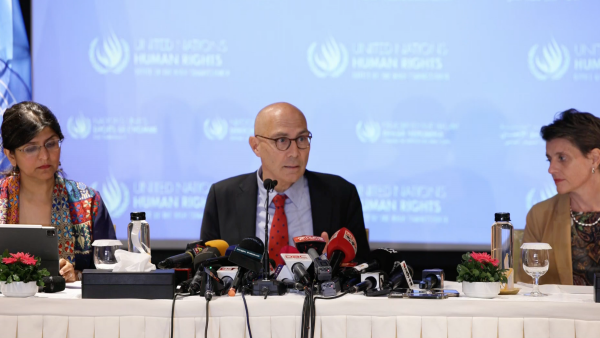The United Nations’ Human Rights Office (OHCHR) has found that human rights violations in Bangladesh did not occur only during the Awami League era but are also taking place under the interim government’s tenure. This finding was revealed in a fact-finding report made public by the UN agency on Wednesday.
Divided into two broad sections, the report states that human rights violations during the interim government’s tenure include revenge abuses targeting the police, Awami League members, and the media, as well as abuses against religious and indigenous communities.
According to the report, revenge abuses have included lynching of Awami League members, police officials, and journalists during and after the July uprising; burning and looting of police stations; attacks on Awami League offices and the homes of party leaders; arson at the Dhanmondi-32 house belonging to Sheikh Hasina’s family; sexual violence against female members of the Awami League; and attacks on journalists and media houses allegedly associated with Sheikh Hasina’s government.
Additionally, the OHCHR report documents human rights violations against religious and indigenous communities since the interim government under Prof. Muhammad Yunus took over. These include widespread attacks on Hindu homes and establishments, as well as assaults on indigenous communities in the Chittagong Hill Tracts (CHT) by Bengali groups accusing them of being loyal to the former Sheikh Hasina government.
To remain in power, the former Sheikh Hasina-led Awami League government, along with its political apparatus—including security and intelligence forces—allegedly used systematic and brutal violence against student-led mass protests in July-August last year, the OHCHR report found.
Based on testimony from senior officials and other evidence, the report highlights serious human rights violations by security forces during the protests, including extrajudicial killings, excessive use of force resulting in serious injuries to thousands, mass arbitrary arrests and detentions, and acts of torture and other mistreatment.
These violations raise concerns under international criminal law, warranting further investigations to determine whether they constitute crimes against humanity, torture as a standalone crime, or serious violations under domestic law, according to the report.




















